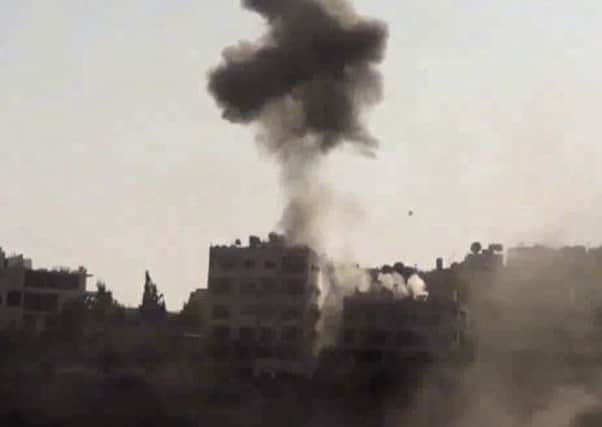Edward Spiers: Deal to disarm Assad raises yet more fears


Are the proposed arrangements for the declaration, inspection, and elimination of Syria’s chemical weapons by the first half of 2014 remotely feasible? Is there scope for the regime of Bashar al-Assad to cheat on these undertakings and retain a stockpile of chemical agents and delivery systems? And are the threats of Presidents Barack Obama and Francois Hollande to use military force credible if the process fails to fulfil the objectives announced in Geneva?
This could not be more serious – UN Secretary General Ban Ki-moon said “this is a war crime” and “a grave violation” of international law while Foreign Secretary William Hague, the Richmond MP, said the findings were “very, very damning”.
Advertisement
Hide AdAdvertisement
Hide AdThe timetable announced by American Secretary of State, John Kerry, and his Russian counterpart, Sergei Lavrov, is unprecedented: a mere seven days – and not the 30 days normally allowed a new signatory of the Chemical Weapons Convention (CWC) – to declare all its stocks of agent, weapons, production sites, and research and development facilities.
Then Syria must allow international inspectors ‘unfettered’ access to all declared sites in November, with the destruction of production and mixing/filling equipment by November. Thereafter the aim is to remove or destroy all chemical weapons material and equipment by the first half of 2014.
No other state, possessing a stockpile that compares with one that Syria may declare (that is, in excess of a 1,000 tonnes of chemical agents and weapons), has ever destroyed stocks in so short a period of time. And no state has ever attempted to do so in the midst of a civil war, with some suspected sites, as in Al-Safira, in the centre of a heavily contested region.
Much will depend on the size, composition and location of the declared stockpile but safety concerns, environmental fears, and technological requirements normally mean that the destruction process is slow, expensive, and time-consuming. India and South Korea took three to four years to destroy similar-sized stockpiles.
Advertisement
Hide AdAdvertisement
Hide AdThe United States has already spent $35bn in building specialist facilities to destroy its stockpile, and will not complete the final destruction until 2023. That will be eight years after the Russian destruction in 2015 but Russia, like Libya in 2004, did not declare all its chemical weapons (Russian special forces used a fentanyl-based gas to end the Moscow theatre siege on October 26, 2002, killing over 120 terrorists and hostages). So could Assad cheat?
This is exactly what US Republican Senators John McCain and Lindsey Graham have claimed in denouncing the deal as “an act of provocative weakness” by the Obama administration. Assad has had the time and the incentive to do so.
In the three weeks since the Damascus attacks of August 21, his military have had ample opportunity to move some chemical agents, weapons, and items of equipment from their suspected sites and to conceal them for their original purpose, namely countering the military arsenal of Israel.
Assad knows, too, that he could appear to co-operate with the declaration, inspection, removal, and destruction process of the Geneva deal, and the accompanying UN Security Council resolution, with little threat of military action thereafter.
Advertisement
Hide AdAdvertisement
Hide AdRussia, now driving the diplomatic agenda, has consistently opposed any inclusion of such a threat in formal pronouncements, and Obama, having failed to carry Congressional opinion in the wake of the Damascus attacks, will be in no position to do so on the eve of the mid-term Congressional elections in 2014. France will not act alone.
So there is every reason to be wary about future developments in this unfolding drama.